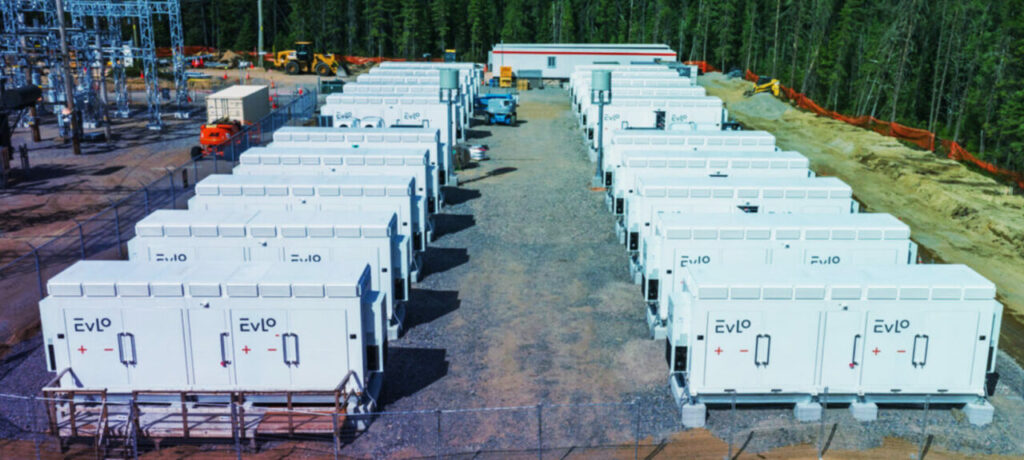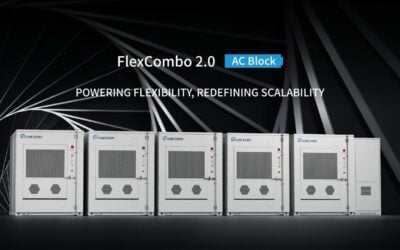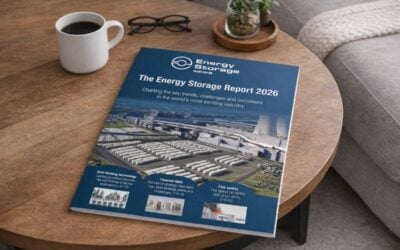
Canadian utility Hydro-Quebec’s BESS technology arm EVLO Energy Storage has prioritised safety and quality while “compromising” on energy density, executives told Energy-Storage.news.
The battery energy storage system (BESS) supplier was founded in 2020 to commercialise Hydro-Quebec’s in-house lithium-ion phosphate (LFP) BESS platform outside of Canada, where it has been in deployment for years on the utility’s own projects. The firm owned several LFP patents until they expired in late 2023.
EVLO now has 20 projects deployed, being built or contracted in the US, Canada, France and an island in the Pacific, totalling around 525MWh, Anne Vincent, marketing director told Energy-Storage.news while at the Energy Storage Summit USA 2024 in Austin last week.
Her colleague Jonathan Levesque, head of production innovation and technology development, explained the firm’s approach to its BESS technology.
Try Premium for just $1
- Full premium access for the first month at only $1
- Converts to an annual rate after 30 days unless cancelled
- Cancel anytime during the trial period
Premium Benefits
- Expert industry analysis and interviews
- Digital access to PV Tech Power journal
- Exclusive event discounts
Or get the full Premium subscription right away
Or continue reading this article for free
“We come from a utility so quality and safety are in our DNA and are things we don’t compromise on. We do, however, compromise on energy density. The solution is less dense than others but we make sure everything is safe to operate,” Levesque said. “Density is not the primary concern for our customers.”
The firm’s latest generation product, EVLOFLEX, has an energy density of 2.5MWh per 20-foot shipping container-sized unit while many of the latest BESS products from other suppliers, particularly from China, pack 5MWh into the same space.
The topic of density has become more prominent in the last few years as projects are deployed in regions with smaller footprints of available land. However, note that when it comes to energy density, megawatt-hours relative to the site, as well as the unit, should be considered, too. For example, if BESS units only open up from one side, that means they can be stacked in units of two side-by-side, reducing the overall footprint.
The company’s 525MWh project portfolio includes projects in California, Vermont and Virginia in the US as well as one in France commissioned in 2022 for project owner Innergex. In Canada, it secured a 60MWh order from developer SolarBank for three projects in Ontario in late 2023.
Levesque also said that EVLO’s utility parent company meant it brings an understanding of what utility customers want, as well as deep expertise in community acceptance when it comes to deploying BESS projects near local populations.
To date, EVLO has only used one LFP cell supplier for its projects, an unnamed company that was building its cells using Hydro-Quebec’s LFP patents. The commercial model has shifted since the LFP patents expired – and with them the attached royalties for production – and EVLO is open to procuring US-made cells once that capacity starts to come online, Levesque said.





